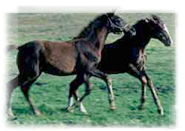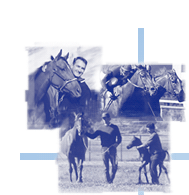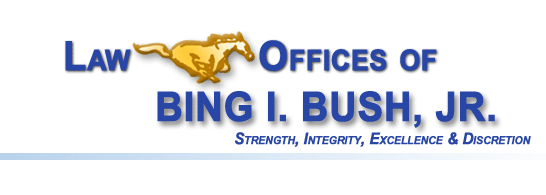|
I recently gave my four-year-old
gelding some well-deserved time off from the track and sent him to a
nearby farm, where he was to be turned out on a daily basis for about
two months. Two weeks later I received the horrible news that my horse
suffered a career-ending injury at the farm when he got loose from his
handler, ran about the property, and stepped into a gopher hole. Is the farm liable for this accident? Are they required to carry
liability coverage, and if so, will this insurance reimburse me for the
value of my horse?
 A farm would be liable for damages to
the horse only if "negligence" was found. And while farms are
not required to carry liability insurance, many do in the form of
"care, custody, and control" insurance. Care, custody, and
control insurance protects farm owners only up to their policy's limits,
and thus may not cover the total value of top horses. A farm would be liable for damages to
the horse only if "negligence" was found. And while farms are
not required to carry liability insurance, many do in the form of
"care, custody, and control" insurance. Care, custody, and
control insurance protects farm owners only up to their policy's limits,
and thus may not cover the total value of top horses.
In the above scenario, the horse owner
might have a claim against the farm for negligence. If the farm carried
care, custody, and control insurance, the farm's insurance carrier may
investigate the claim and determine whether it should be paid or denied.
If denied, or if the farm did not carry such insurance, the owner could
then file his or her own suit against the farm.
If the courts find the farm liable for
the accident or injury, the insurance company would pay the claimant for
damages up to the policies limits. If the animal's value was greater
than the policy's limits, the owner could then pursue the farm for the
additional amount. And if liability insurance was not in place, the farm
would be directly held accountable for paying damages.
The determination of legal liability
surrounding negligence is complex, and involves a rather fact-intensive
analysis.
The first question is whether a
boarding contract was signed that legally limits the farm's liability
for negligence. While a farm cannot completely absolve itself from
damages caused solely by its own negligence, the farm can contractually
limit its liability for such damages if its contract contains the
legally correct language.
Assuming such a contract does not
exist, or is ineffective, and further assuming that you agreed to pay
board or some other compensation to the farm for keeping your horse, the
farm has a duty to physically inspect its property and repair any
dangerous conditions, including gopher holes. If the farm failed to
inspect the property and fill in the gopher holes, it should be held
liable. If the farm did inspect the property, it may or may not be held
liable depending upon how much time elapsed from the time the property
was inspected to the time your gelding stepped in the gopher hole. If it
was an unreasonably long time, the farm may be held liable.
To determine the reasonableness of the
amount of time since the farm was inspected, the court will consider the
size of the farm, whether the farm had a history of gopher holes, what
efforts were made in the past to either fill in the holes or ensure that
no horses could enter the area where the holes were located, or to
remove the problematic gophers.
Fundamentally, the judge or jury will
try to determine whether efforts made to inspect the property and
ameliorate any dangerous conditions were reasonable, given the magnitude
of the risk of damage or injury. Considering the consequences of an
injury to your horse, it is generally a good idea to discover whether
the farm is adequately insured to cover the value of the horse in the
event of a misfortune. Likewise, it is important for farms to ensure
that they have the appropriate coverage in the event an accident occurs
on their property.
(This article first appeared in
the July 2000 issue of Owner's Circle and is reprinted
with permission of Thoroughbred
Owners of California )
Back
main Articles Page.

|

